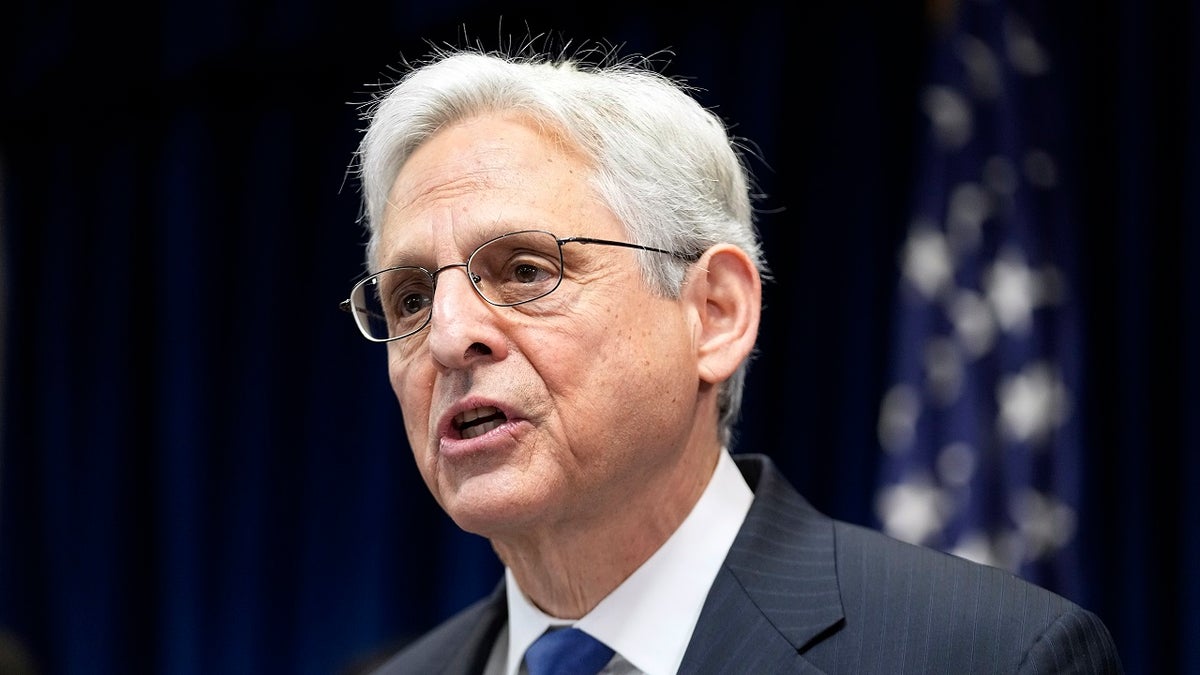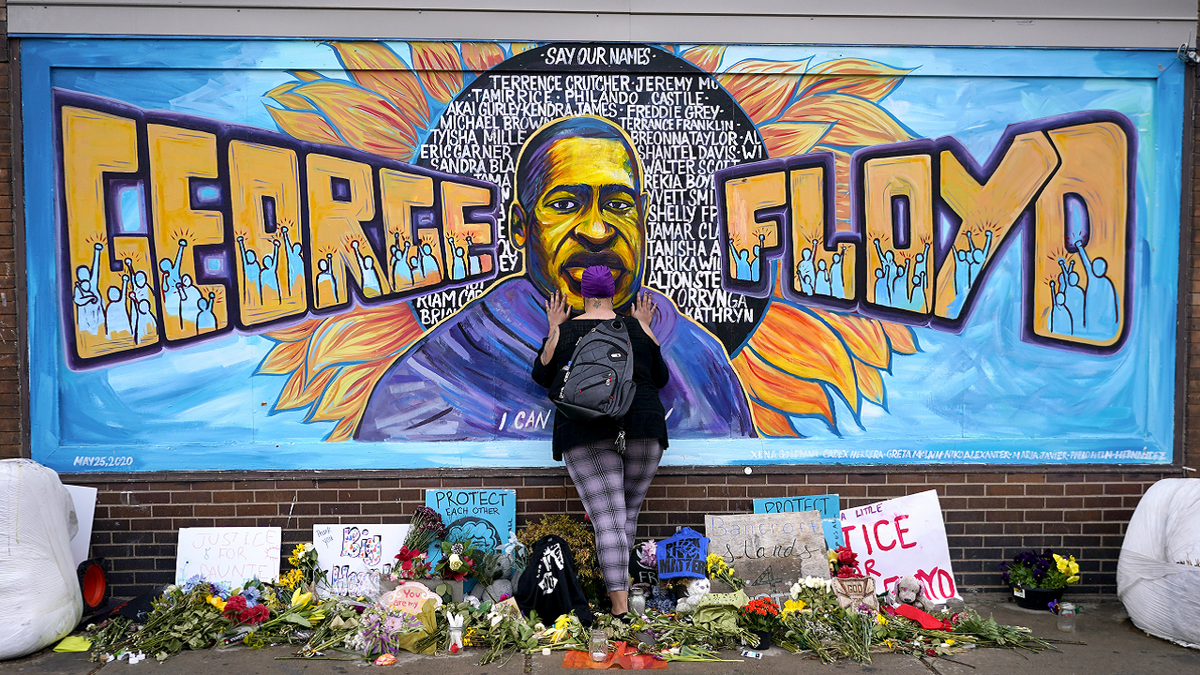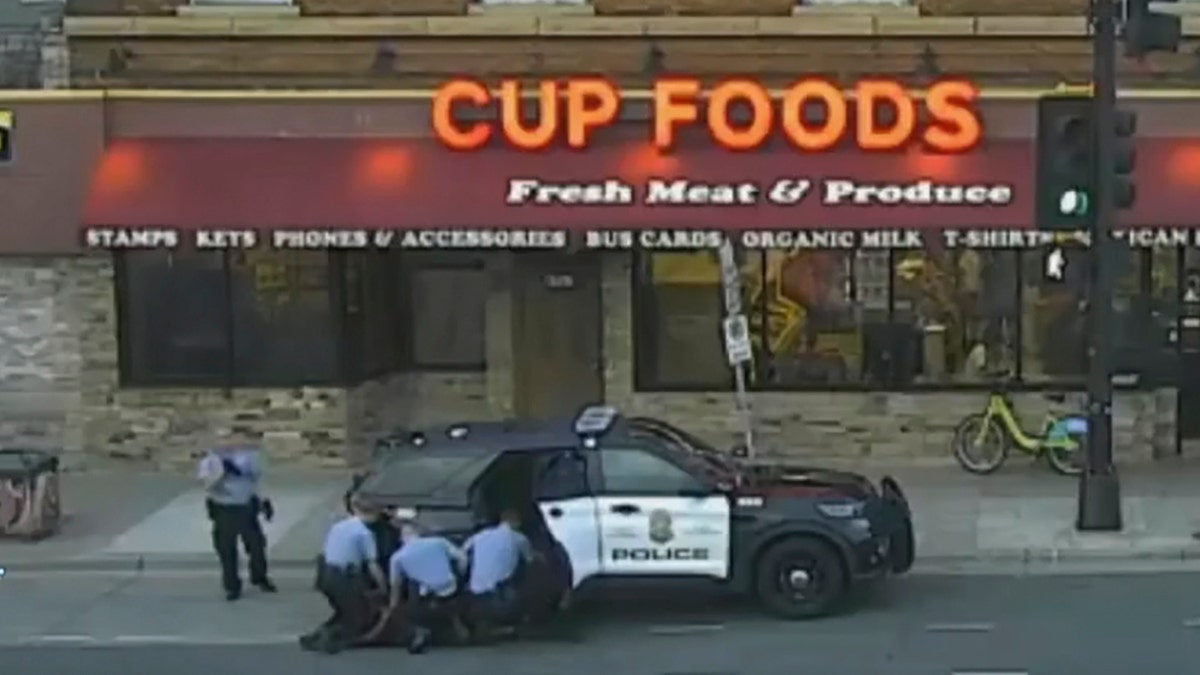DOJ accuses Minneapolis police of 'pattern or practice' of excessive force, racial discrimination
Attorney General Merrick Garland announced Friday that a Department of Justice investigation found a "patter or practice" of excessive force and racial discrimination by Minneapolis and the city's police department.
Attorney General Merrick Garland announced Friday that a Justice Department investigation into the conduct of the Minneapolis Police Department and the city of Minneapolis, Minnesota, following the May 2020 death of George Floyd has uncovered evidence of the use of excessive force and racial discrimination.
Garland said there is "reasonable cause to believe that the MPD and the city of Minneapolis engaged in a pattern or practice of conduct that violates the First and Fourth Amendments of the United States Constitution."
"We found that MPD and the city of Minneapolis engages in a pattern or practice of using excessive force, unlawfully discriminating against Black or Native American people in enforcement activities, violating the rights of people engaged in protective speech, and discriminating against people with behavioral disabilities when responding to them in crisis," Garland said.
The Justice Department's "pattern or practice" investigation into the Minneapolis Police Department was launched in April 2021, a day after former Minneapolis police officer Derek Chauvin was convicted of second-degree murder in the death of George Floyd in the Minnesota city on May 25, 2020.

Attorney General Merrick Garland, on Friday, June 16, talks about a Department of Justice report that found the Minneapolis Police Department has engaged in a pattern or practice of discrimination. (AP/Abbie Parr)
On Friday, Garland said, "As I told Goerge Floyd’s family this morning, his death has had an irrevocable impact on the Minneapolis community, on our county, and on the world. His loss is still felt deeply by those who loved and knew him and by many who did not. George Floyd should be alive today."
During the federal investigation, "[w]e observed many MPD officers who did their difficult work with professionalism, courage, and respect," Garland said, but he added that the "patterns and practices we observed made what happen to George Floyd possible."
"A review found numerous incidents in which MPD officers responded to a person’s statement that they ‘could not breathe’ with a version of ‘you can breathe, you are talking right now,'" Garland said.

Damarra Atkins pays respects at George Floyd Square in Minneapolis, Minnesota, on April 23, 2021. (AP/Julio Cortez)
He added that investigators also found multiple instances of Chauvin using excessive force on others before he killed Floyd. During those instances, MPD officers stood by and did not stop Chauvin, according to Garland.
The attorney general also said the Justice Department found that MPD "often uses excessive force often when no force is necessary, including unjust deadly force and unreasonable use of tasers," and that "MPD officers discharged firearms at people without assessing whether the person presents any threat, let alone a threat that would justify deadly force."
JUSTICE DEPARTMENT NOTIFIES PGA TOUR OF PROBES INTO LIVE GOLF MERGER: REPORT
He cited a 2017 case in which an unarmed woman – who had called 911 to report a possible sexual assault in a nearby alley – was shot and killed by an officer who said she had "spooked him."
Garland said data also shows MPD stopped Black and Native American people "nearly six times more often than White people in situations that did not result in arrest or citation, given their shares of the population."
He said in one instance, it was discovered that after MPD officers stopped a car carrying four Somali-American teens, one officer told the teens, "Do you remember what happened in 'Black Hawk Down,' when we killed a bunch of your folk? I’m proud of that. We didn’t finish the job over there, if we had, you guys wouldn’t be over here right now."
"Such conduct is deeply disturbing and it erodes the community's trust in law enforcement," he said.

In this image from surveillance video, former Minneapolis police Officers from left, Tou Thao, Derek Chauvin, J. Alexander Kueng and Thomas Lane are seen attempting to take George Floyd into custody in Minneapolis on May 25, 2020. (Court TV via AP, Pool, File)
Garland commended the Minneapolis Police Department and city leaders for implementing some reforms already, such as prohibiting all types of neck restraints and banning no-knock search warrants.
"But as the report outlines there is more work to be done. The Justice Department is recommending 28 remedial measures that provide a starting framework to improve public safety, build community trust and comply with the Constitution and federal law," he said. "The city of Minneapolis and MPD have signed an agreement in principle with the Department of Justice. This agreement commits the city and MPD to work with the Justice Department, the community, police officers, and other stakeholders to address the problems that we have identified."
CLICK HERE TO GET THE FOX NEWS APP
"This agreement commits all parties… to negotiate a legally-binding consent decree with an independent monitor," Garland said.
Mayor Jacob Frey told reporters after Garland spoke that he is "optimistic over the next several years that Minneapolis will be the city the nation looks to for constitutional and trustworthy policing," adding that "we have the power here to affect lasting change, to affect generational change, and we embrace that."















































